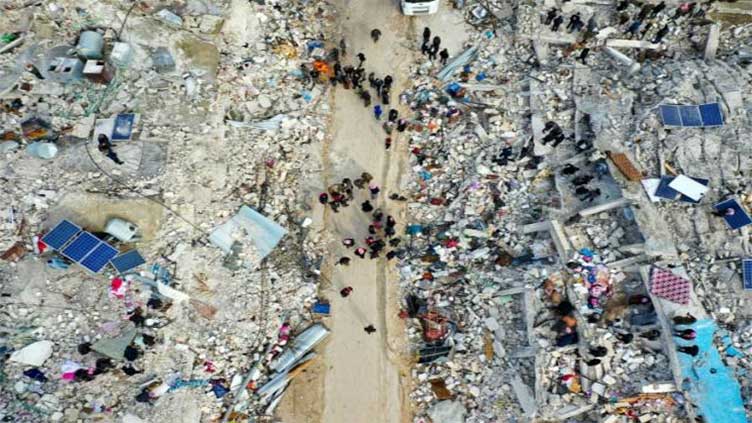At least 20 escape Syria prison holding IS inmates after quake

World
Prisoners mutinied in a northwestern Syria prison Monday following a deadly earthquake.
AZAZ (Syria) (AFP) – Prisoners mutinied in a northwestern Syria prison Monday following a deadly earthquake, with at least 20 escaping the jail holding mostly Islamic State group members, a source at the facility told AFP.
The military police prison in the town of Rajo near the Turkish border holds about 2,000 inmates, with about 1,300 of them suspected to be IS fighters, said the source.
The prison also holds fighters from Kurdish-led forces.
"After the earthquake struck, Rajo was affected and inmates started to mutiny and took control of parts of the prison," said the official at Rajo jail, which is controlled by pro-Turkish factions.
"About 20 prisoners fled... who are believed to be IS militants."
The 7.8-magnitude quake -- which was followed by dozens of aftershocks in the region -- caused damage to the prison, with walls and doors cracking, the source added.
The British-based Syrian Observatory for Human Rights war monitor said it could not verify whether prisoners had escaped, but confirmed there was a mutiny.
At least 1,444 people died Monday across Syria after the devastating earthquake that had its epicentre in southwestern Turkey, the government and rescuers said.
In rebel-held parts of the country's northwest, at least 733 people were killed and more than 2,100 injured, according to the White Helmets rescue group.
The incident in Rajo comes on the heels of an IS attack in December on a security complex in their former de facto Syrian capital of Raqa, which aimed to free fellow jihadists from a prison there.
Six members of the Kurdish-led security forces that control the area were killed in the foiled assault.
The conflict in Syria started in 2011 with the brutal repression of peaceful protests and escalated to pull in foreign powers and global jihadists.
Nearly half a million people have been killed, and the conflict has forced around half of the country's pre-war population from their homes, with many seeking refuge in Turkey.


